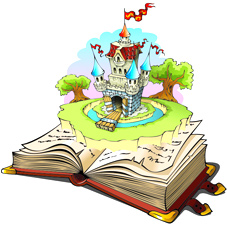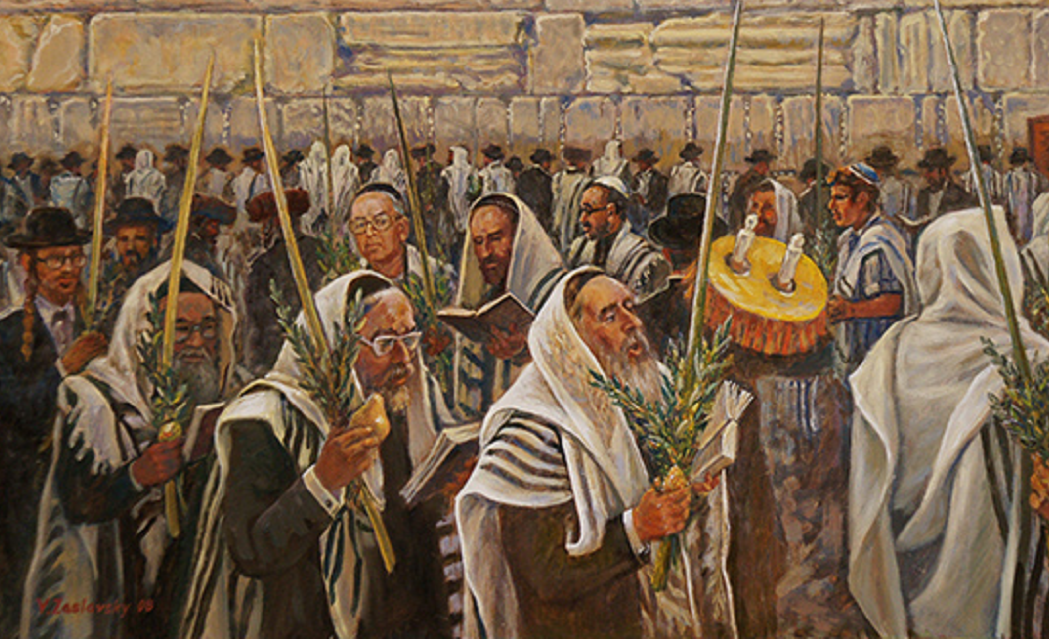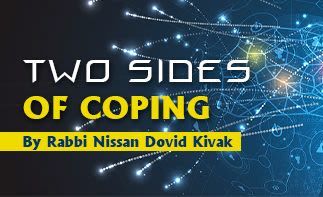
Rebbe Nachman’s Stories: Overview
Rebbe Nachman didn’t preach; he said that people would only be brought close to G-d in a way that they were unaware of, subtly, without the feeling of indoctrination...

I spent a lot of time in high school learning English texts inside-out and writing ‘insightful’ and ‘analytical’ essays about the inner meanings and hidden intentions of the authors. Well, I thought Shakespeare was deep until I read Rabbi Nachman’s Stories….
I’m not qualified to review the Rebbe’s stories, but as an avid fan and often-time reader of this incredibly holy and endlessly deep collection of tales, epics and parables, I simply want to share my love and enthusiasm for them with you.
 Rabbi Nachman’s Stories are a stunning collection of tales that he used to reveal on certain festivals or Shabbats. The word ‘reveal’ is relevant and is how Rabbi Nathan, Rabbi Nachman’s premier disciple, describes their telling. Revelation implies a previously hidden state; an upper source, a mysterious, other-worldly meaning, and perhaps crucial timing. There was usually a seemingly related incident or conversation that would “spark” the Rebbe’s telling of a tale: an immense excitement and unexpected honor for those present at the time.
Rabbi Nachman’s Stories are a stunning collection of tales that he used to reveal on certain festivals or Shabbats. The word ‘reveal’ is relevant and is how Rabbi Nathan, Rabbi Nachman’s premier disciple, describes their telling. Revelation implies a previously hidden state; an upper source, a mysterious, other-worldly meaning, and perhaps crucial timing. There was usually a seemingly related incident or conversation that would “spark” the Rebbe’s telling of a tale: an immense excitement and unexpected honor for those present at the time.
Rabbi Nachman once explained that many people would never come close to G-d with obvious instruction. They were too far away, too negative, afraid, or perhaps ignorant of religion. They would only be brought close to G-d in a way that they were unaware of, subtly, without the feeling of indoctrination. It was with this in mind that he revealed the stories with the greatest care taken over every word: infinitely deep, intricately woven, and inherently understood by even the furthest of souls.
Seemingly disguised as fairytale-like fables with kings, queens, villains, and merchants, water castles and flying mountains, turkeys and spiders – there is no official commentary, though often the Rebbe himself hinted, and is quoted mysteriously at the end of some of the stories and parables, as to their possible meaning – using quotes from the breadth of Torah as clues. Although there are several excellent volumes available of allegorical readings and interpretations: the fact remains that each individual soul feels the truth of each story differently and reacts accordingly. That is the mystery, beauty and power of Rabbi Nachman’s Stories.
Breslever tradition is to read the Rebbe’s Stories every Shabbat during the day, after reciting the Kiddush, the blessing over the wine. Interestingly, the stories are believed to be possibly dated back to the times of the First Temple, and re-revealed by Rabbi Nachman for our time. Their ultimate purpose was to arouse and awaken thirsty souls to seek knowledge of and closeness to G-d.
It worked for me.
We used to host a Breslever for Shabbat, who was alone in our town and praying at the same synagogue as my husband, himself newly attached to Rabbi Nachman. I, however, could not have been any further. Our guest used to bring his well-worn volume of the Rebbe’s stories to every meal and read them to us, and then whoever was present used to join in the ‘interpretation’. That was usually my cue to do the dishes and prepare dessert. “Hey,” he asked once, “why don’t you leave the dishes for later and join us?”. I rather rudely told him that I wasn’t a big fan of such stories and preferred a more rational approach to Torah: scientific proofs and all. He got the hint and didn’t press further. Or so I thought.
The next week he came over and presented me with a little gift: an allegorical reading of the Rebbe’s tale of “The Exchanged Children”, by Rabbi Erez Moshe Doron. I politely thanked him through gritted teeth and wondered to myself who gives someone a present that they told you in advance they aren’t interested in?! The book was shelved and forgotten. Or so I thought.
The next day, I got a call from a Rabbi’s wife: she needed a ride to a religious woman’s event and could I please take her and bring her back? I reluctantly agreed and then realized that I’d better take some suitable reading to do and not a fashion magazine or trashy novel. I grabbed the nearest thing off the shelf: What’s that? The book from the Breslever? Why not. Maybe I’d have some good arguments for the next Shabbat meal. Or so I thought.
With the Rabbi’s wife safely ensconced at her event, I sighed and hunkered down with “The Exchanged Children” for the next hour and a half. After about 10 minutes of increasingly intense reading: I started to sob, almost uncontrollably.
The story could have been written for me. About me. To me. It spoke to my soul, and shook me to my core. I knew that the world was about to change. For the rest of the event, I devoured what I could of the book, flipping the pages back and forth, reading and re-reading, absorbing whatever I could. It was like water for my parched soul, although I didn’t know I had been so thirsty.
Since then, my love and appreciation for the Rebbe’s stories keeps growing in leaps and bounds. Each time we lovingly begin a new story, we try to keep count of how many times we’ve read it: yet every time it is as if we read it for the first time, for each time one reads one of these stories, one is not in the same place, literally or figuratively. With each and every reading, a new word or idea leaps out, a meaning slips into place, a mystery is solved; a problem resolved. A soul revived: a story brought to life.
Rabbi Nachman’s Stories somehow encompass all the stories ever told, yet resemble none of them. They are vaguely familiar, yet completely unpredictable. Full of emotion, humor, suspense and drama: the stories often unfold as narratives within narratives, or simple prose disguising infinite worlds.
Even if I didn’t have the opportunity to learn Rabbi Nachman back in high school, I’m glad I learned something about literature back then. It made me that much more able to appreciate the beauty and brilliance of the Rebbe’s Stories today.











8/04/2011
well… u made ME sob, almost uncontrollably… the problem is that ppl don't know that just like there r proofs for the torah that its from g-d there r 100% logical proofs that r' nachman reached the highest level ever by far here they r: the greatest tsadikim of his generation (hachoze, the litvish baal hamate efraim etc.) say that he's a tsadik THEY have no perception in. so if someone like that says he reached that level is there any doubt? this is a VERY short explanation for more elaboration u can email me at hemi.tb@gmail.com good luck
8/04/2011
the problem is that ppl don't know that just like there r proofs for the torah that its from g-d there r 100% logical proofs that r' nachman reached the highest level ever by far here they r: the greatest tsadikim of his generation (hachoze, the litvish baal hamate efraim etc.) say that he's a tsadik THEY have no perception in. so if someone like that says he reached that level is there any doubt? this is a VERY short explanation for more elaboration u can email me at hemi.tb@gmail.com good luck